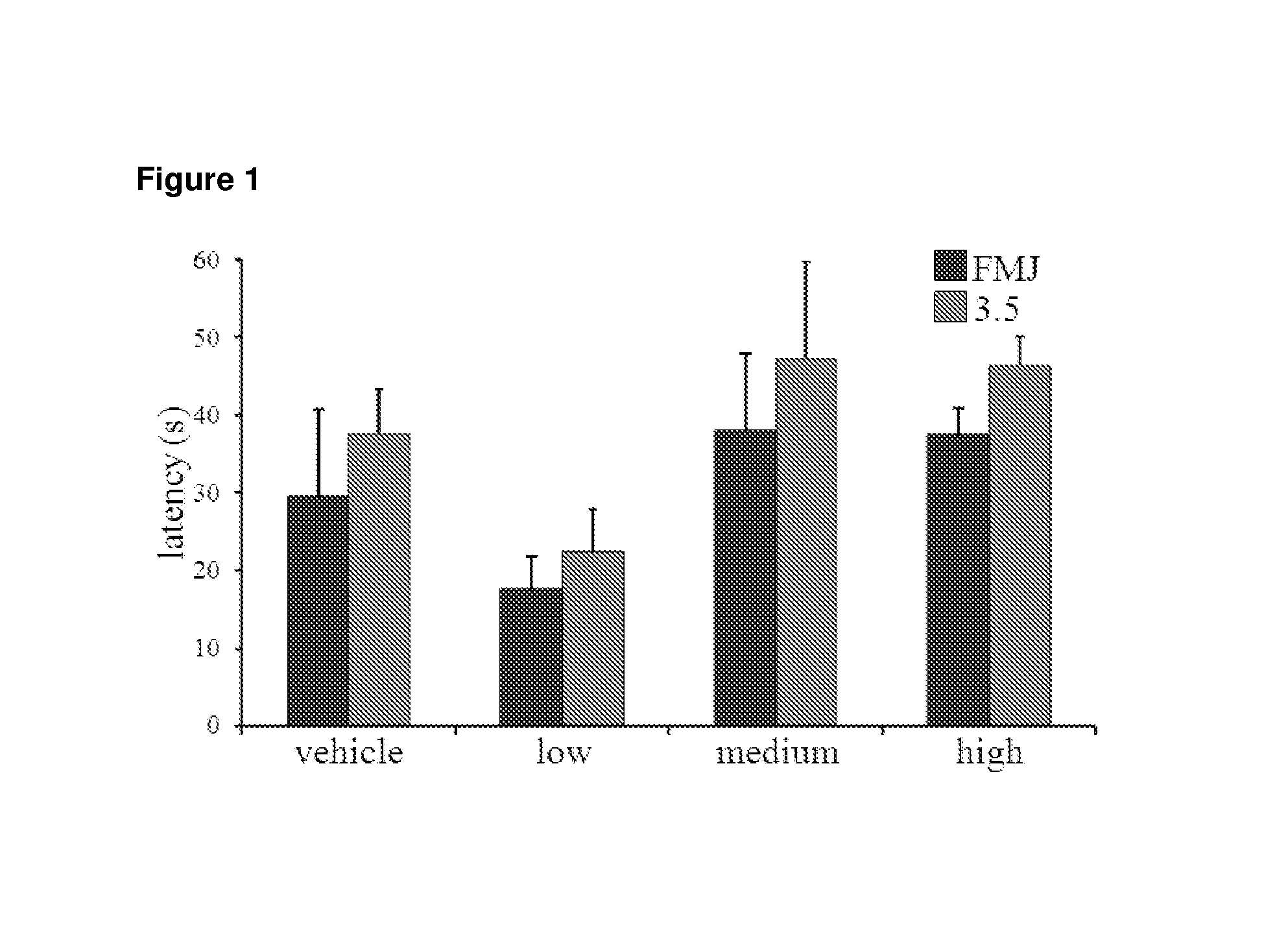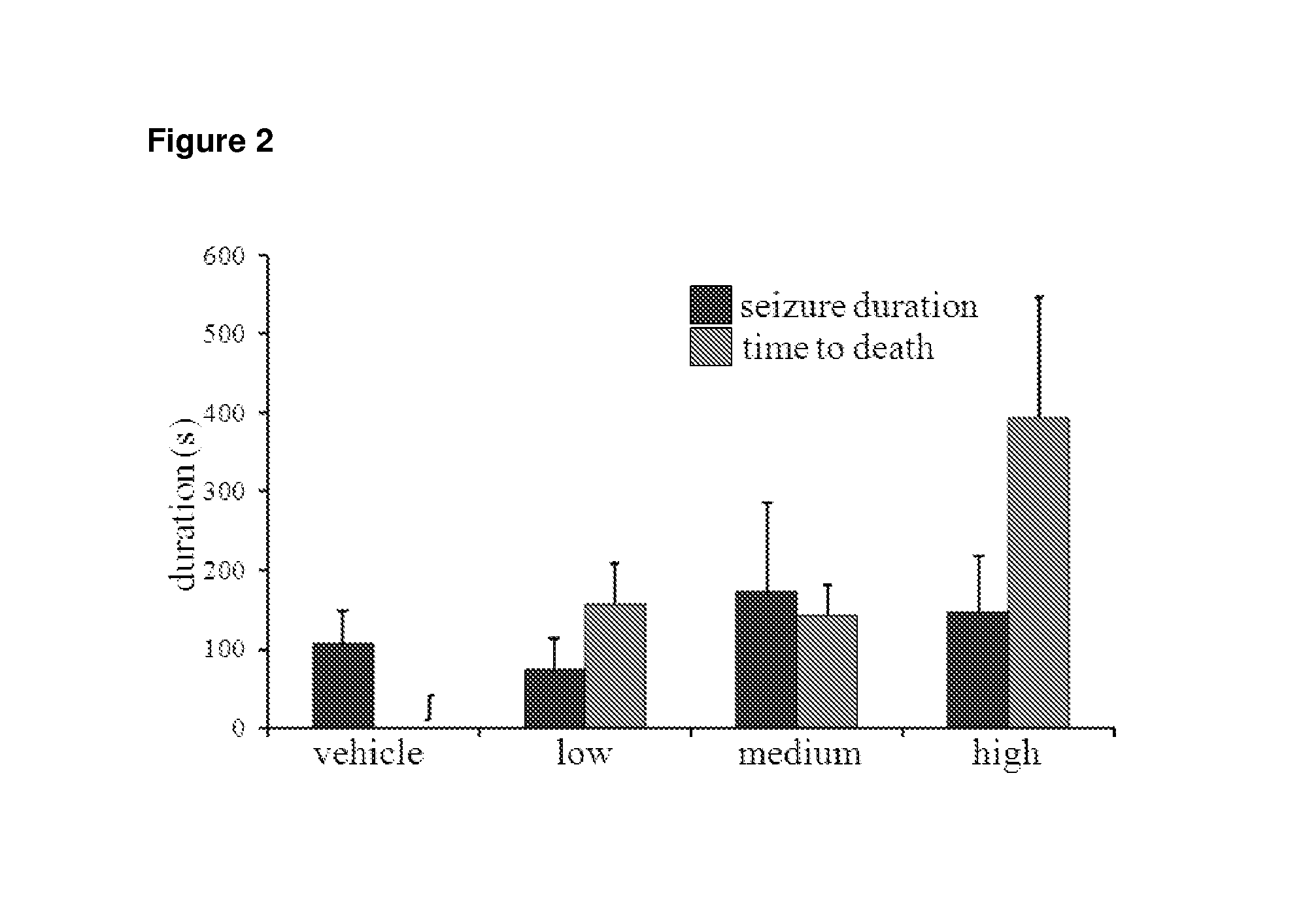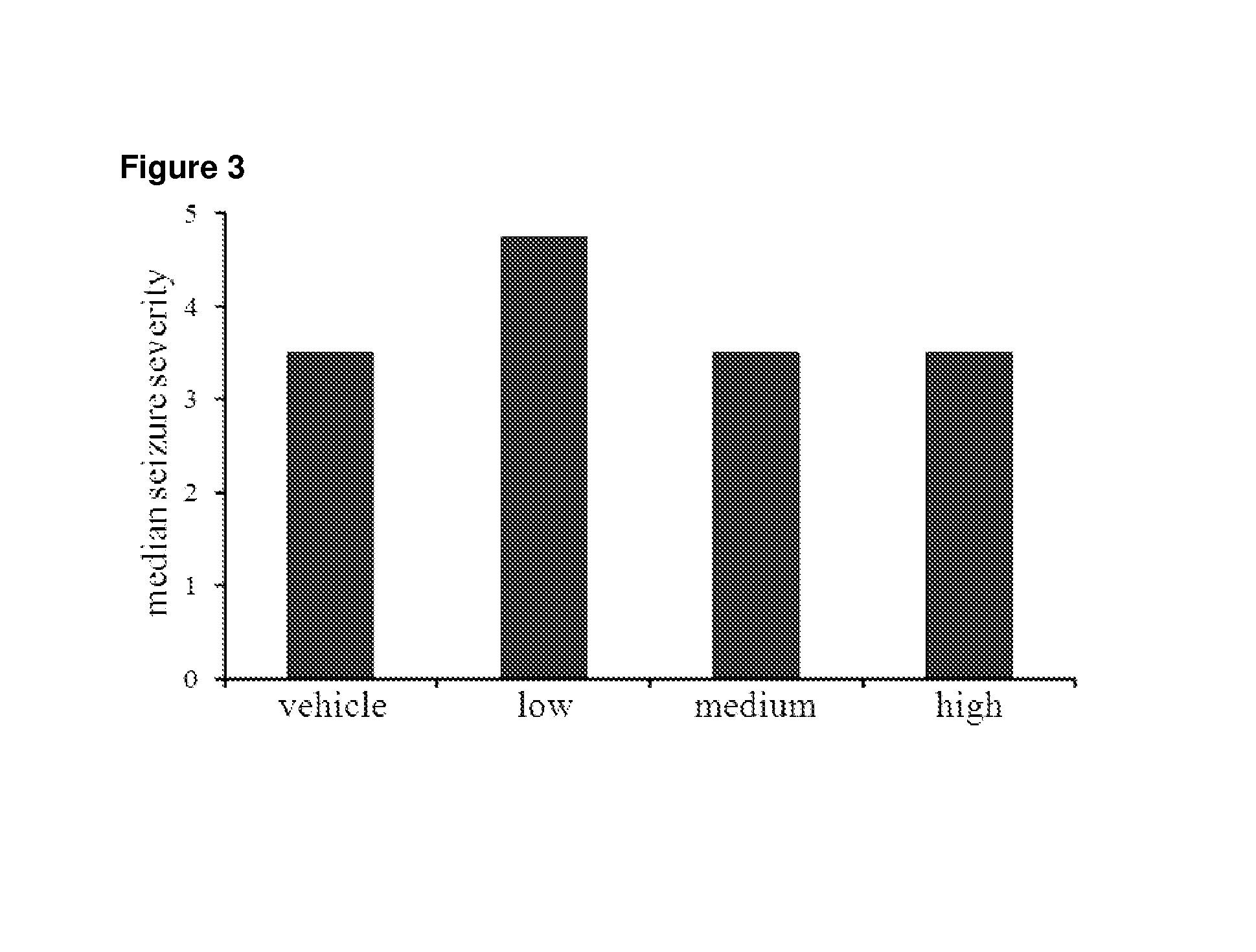Use of one or a combination of phyto-cannabinoids in the treatment of epilepsy
a technology of phytocannabinoids and epilepsy, applied in the field ofchronic neurological disorders, can solve the problems of unsatisfactory dose levels used in trials, mild sedation, and return of seizures
- Summary
- Abstract
- Description
- Claims
- Application Information
AI Technical Summary
Benefits of technology
Problems solved by technology
Method used
Image
Examples
example 1
THCV (BDS)
[0078]The THCV BDS comprised a whole extract of a chemovar in which THCV was the predominant cannabinoid. (i.e. it was the major cannabinoid present in the extract, 80% by weight of the total cannabinoid content). THC was the second most prevalent cannabinoid, and was present in significant amounts. (i.e. it comprised greater than 10% by weight of the total cannabinoid content, being present at about 16%), and there were a number of minor cannabinoids identified, each comprising less than 2% by weight of the total cannabinoid content as measured by HPLC analysis. The ratio of THCV to THC in this extract is about 5:1.
[0079]In fact the THCV content was 67.5% by weight of the extract and the THC content was 13.6% by weight of the extract, with the other identified cannabinoids in total comprising about 3% by weight of the extract, the remaining 16% comprising non-cannabinoids.
PTZ Pilot Study
[0080]Seizures induced by a range of PTZ concentrations (50-100 mg / kg; the range prese...
example 2
THCV (pure)
Effect of Pure THCV Against PTZ-Induced Seizures
[0095]Low (0.025 mg / kg), medium (0.25 mg / kg) and high (2.5 mg / kg) doses of pure THCV were assessed for their effects on PTZ-induced seizures. It is worth noting at this point, for comparisons to Example 1 (THCV BDS), that differing doses of pure THCV were used compared to THCV BDS. See Table 2 below.
[0096]
TABLE 2Comparison of THCV BDS and pureTHCV doses used in PTZ model“low” dose“medium” dose“high” doseTest CB(mg / kg)(mg / kg)(mg / kg)THCV0.252.525BDSPure0.0250.252.5THCV
Values given are for effective THCV content of doses (therefore actual doses of THCV BDS are approx 1.5 times larger).
[0097]80 mg / kg PTZ successfully induced seizures of varying severities in animals from all 4 experimental groups (n=16 per group). PTZ-induced seizures led to the death of 44% of animals that received vehicle alone. Groups that received low, medium and high THCV all exhibited lower mortality rates of 41%, 33% and 38% respectively; however these va...
example 3
CBD (pure)
[0108]In addition to THCV, CBD was also screened in the PTZ model. The results strongly indicate that CBD (at levels of 100 mg / kg) in this model is anti-convulsant as it significantly decreased the mortality rate and incidence of the most severe seizures compared to vehicle control animals.
Effect of Pure CBD Against PTZ-Induced Seizures
[0109]Pure CBD was injected intra-peritoneally (IP) in the standard vehicle (1:1:18 ethanol:Cremophor:0.9% w / v NaCl) at doses of 1, 10 and 100 mg / kg alongside animals that received vehicle alone at a matched volume (n=15 for each group). 60 minutes later PTZ (80 mg / kg, IP) was administered.
[0110]46.7% of control animals that received vehicle alone died within 30 minutes of PTZ administration (FIG. 10). In contrast only 6.7% (only 1 of 15) of animals that received 100 mg / kg CBD died, a marked reduction that proved to be significant (p<0.001).
[0111]Additionally only 6.7% of animals that received 100 mg / kg CBD experienced the most severe seizur...
PUM
| Property | Measurement | Unit |
|---|---|---|
| humidity | aaaaa | aaaaa |
| weight | aaaaa | aaaaa |
| seizure frequency | aaaaa | aaaaa |
Abstract
Description
Claims
Application Information
 Login to View More
Login to View More - R&D
- Intellectual Property
- Life Sciences
- Materials
- Tech Scout
- Unparalleled Data Quality
- Higher Quality Content
- 60% Fewer Hallucinations
Browse by: Latest US Patents, China's latest patents, Technical Efficacy Thesaurus, Application Domain, Technology Topic, Popular Technical Reports.
© 2025 PatSnap. All rights reserved.Legal|Privacy policy|Modern Slavery Act Transparency Statement|Sitemap|About US| Contact US: help@patsnap.com



